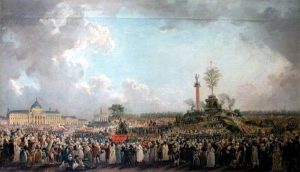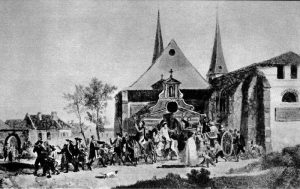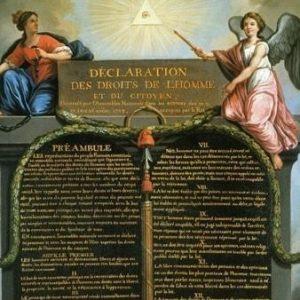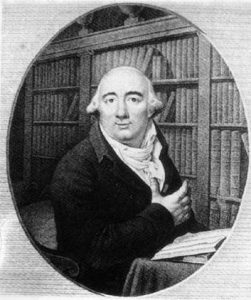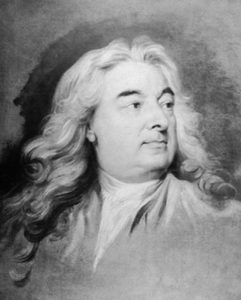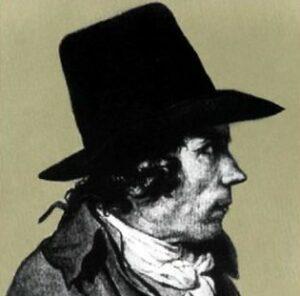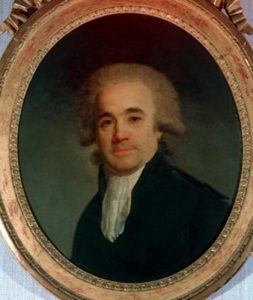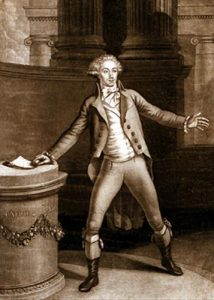The Reign of Terror
1793, which began with Louis XVI’s death (on 21st January), was marked by the founding of repressive institutions such as the revolutionary law courts ( in March) and the Public Safety Committee (Comité de Salut Public) in April. The Montagnards triumphed and the Jacobins were overthrown, several of them even beheaded.
Among them were five protestants : Rabaut Saint-Etienne (Gard), Marc-David Alba-Lasource (Tarn), Pierre Ribes (Gard), J.B. Hervieux (Seine-et-Marne), Pierre Soulier (Gard).
Dechristianisation
The phenomenon of Dechristianisation was characterised, principally, by being short-lived, and also not a government organisation. The Public Safety Authority and the Convention were hostile to, at least suspicious of, the phenomenon.
The first closure of churches was in the provinces, under the aegis of Deputies (représentants en mission) or Surveillance Committees. But Paris was soon to follow suit.
Dechristianisation varied in intensity from one region to another. The campaign was two-fold. First, all institutionalised religions had to be eradicated and then a new civil Religion of Reason was established (Celebration of Reason : 10th November 1793).
The Convention moved from a Christian, to a revolutionary era. Fabre d’Eglantine succeeded in totally changing the calendar, which by abolishing Sunday, and through the terminology adopted, emphasised the anti-Christian ideal.
Were Protestants affected by the Dechristianisation phenomenon ?
No Protestants belonged to the Parisian groups, or were great “dechristianisers”.
On the other hand, some Reformed pastors, who were supporters of a rational and moral worship influenced by Enlightenment ideas, did not really fight against Dechristianisation.
Most pastors still active in 1793-1794 were made to stop their activity. The community then had to resort to private and family worship.
In a very few places, worship was maintained without interruption, notably in Sainte-Foy in the Gironde and Bergerac in the Dordogne.
It was also the case that worship was never interrupted in chapels of the Danish, Dutch and Swedish embassies.
Some areas also rebelled openly such as Drome and Ardèche.
Resignation of Pastors
Of the 215 pastors in 1793, 98 resigned, three-quarters in the South-East (almost as many as the number of Catholic priests).
Worship was suspended almost everywhere, but in most places only temporarily.
In the Gard department, the number of resignations was proportionate, with 57 pastors resigning. This appears to have been due to the hard-line Representative, Borie, who systematically forced Protestant ministers to resign.
Very few among those who resigned during Year II did so of their own free will. 90 of them are presumed to have been forced and never supported Reason worship. It should also be said that resignation did not mean relinquishing pastoral activities, christenings or weddings, which were often celebrated within the family as had been customary for the Huguenots for some time.
The worship of the Supreme Being (Etre Suprème)
On 7th May 1794, Robespierre stopped Dechristianisation. The Convention ruled that the French people recognised the existence of a Supreme Being and immortality of the soul. The existence of the Supreme Being and immortality of the soul did not seem to contradict the beliefs of Protestants in the 18th century.
Some pastors even considered aspects of revolutionary worship as part of their religious ideal. For example, Convention member Lachaux d’Orléans can be quoted : “I never preached other than the love of freedom, equality and of my fellow men ; my only desire is to keep contributing to the well-being of the Sans-Culottes.” (« je n’ai jamais prêché que l’amour de la liberté, de l’égalité et de mes semblables ; mon unique désir est de continuer à concourir au bien des sans-culottes ».)
From 1795 churches were re-opened.
When worship started again, those who had resigned were generally reintegrated into the body of pastors. In their minds it had been a suspension, rather than a relinquishing, of ministry. Nevertheless, their number never grew back to what it had been, as a quarter of the pastors in 1793 never became evangelists again. Some pastors turned to civil employment.
In conclusion, it should be noted that Protestants had their own individual reactions to the Dechristianisation phenomenon, and that they were not united for or against the Revolution.

